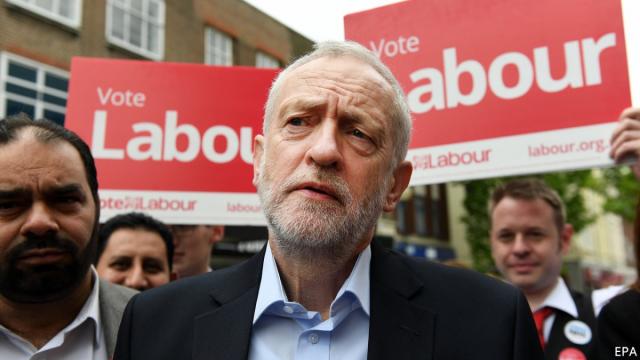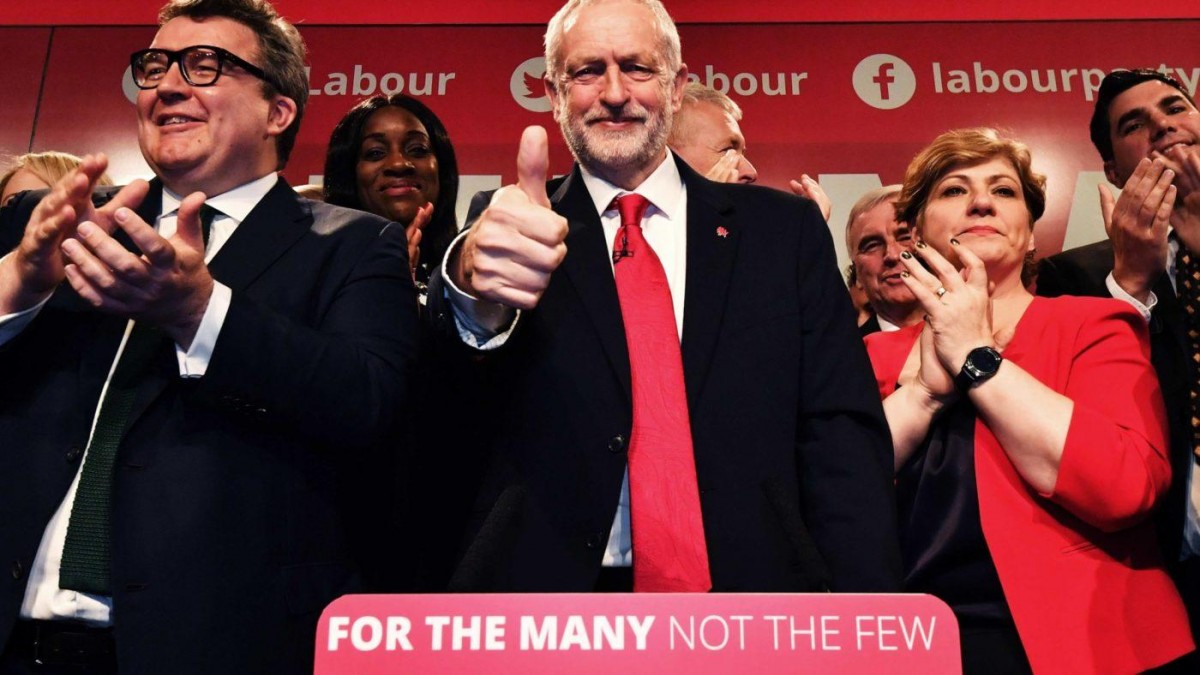
On Monday – hours before terror seized hold of Britain with the deadly suicide bombing in Manchester – U.K. Prime Minister Theresa May made an abrupt U-turn from her most unpopular policy in the Conservative Party manifesto: the establishment of a “dementia tax.” The tax would have required the elderly, where possible, to sell their assets to pay for their care, rather than being provided for by the state. May's change of tack has prompted doubts about her competency as prime minister, and many anticipate a sizable impact on the June 8 polls as a result. Other policies proposed in the Conservative manifesto, launched last Thursday, include a clamp-down on immigration, the introduction of extra fees for foreign workers and students using the National Health Service, taxing firms that use foreign workers, and scrapping free school meals for infant (elementary) pupils.
All of this contrasts sharply with the Labour Party, whose leader, Jeremy Corbyn, last week unveiled an election manifesto five days after it was leaked – purportedly by anti-Corbyn members of the party. The manifesto was more radical than many expected, and featured a proposed 45 percent tax on income over £80,000 and 50 percent on income over £123,000. Policies that would benefit from this extra revenue include nationalization of water supplies, partial nationalization of energy supplies, nationalization of railway services, abolition of university tuition fees and £300 billion in extra funding for the NHS.
Richard Murphy, a professor of practice in international political economy at City, University of London, was responsible for drafting Labour Party economic policies after Corbyn became leader, but he subsequently resigned the role. He believes at this point that the party manifesto's "cost estimates are realistic” and says “there is a lot to applaud” in it.
“All the additional money to cover the new tax cost will be created by the government by a necessary stimulus for the economy, which will leave most people better off,” Murphy told Occupy.com. “Well over 90 percent of all people will not pay any extra tax under the Labour proposal. You are in the top 5 percent of income earners if you earn £80,000 a year in the U.K.”
Murphy said, rather, that his "big worry since John McDonnell became shadow Chancellor of the Exchequer has been his commitment to balancing the current spending budget.”
“Firstly, it removes the critical opportunity to deficit fund the economy when it needs it because the market is letting it stagnate. Secondly, it constrains the supply of essential public services in the event of a downturn in tax revenues, which may be precisely when they're needed. And finally, as a matter of fact, deficits are necessary," he said.
If faced with the opportunity to tweak the party's current manifesto, Murphy said he would add three things: using local authority savings schemes to "turn the vast quantity of savings in this country into funds to invest in social housing"; require that 20 percent of all new pensions contributions "be invested in programs that do not simply inflate share prices but which create new investment our country; and increase the focus on the National Investment Bank – "the key institution to deliver a green new deal that will make the U.K. sustainable. Labour is not saying this loudly enough,” Murphy said.
Richard Seymour, the author of Corbyn: The Strange Rebirth of Radical Politics, writes the popular Lenin’s Tomb political blog and believes that the leaking of the manifesto was a blessing in disguise.
“The attempted sabotage…actually drew attention to how popular these policies were, especially abolishing tuition fees, re-nationalizing utilities and rail, and taxing the rich,” he told Occupy. “There is, of course, a risk of overstating the radicalism. In its underlying growth model, which involves a kind of limited Keynesianism, it is quite cautious. It breaks with the neoliberal consensus at a number of points, but it certainly doesn’t attempt to attack the concentrated power of capitalism. Its goals are moderate shifts in the balance of wealth and power… This is an exciting breakthrough for the left if it can achieve a credible coalition of support.”
Seymour particularly approves of Labour’s manifesto in terms of its tackling class issues.
“The idea of a National Education Service, for example, is an imaginative and potentially radical policy,” he said. “There is also a marvelous program of workers’ rights, banning zero hours contracts and unpaid internships, reversing anti-union legislation, raising the minimum wage, increasing paid holidays, and so on. And what could be more popular than turning rail, water, energy and post into publicly owned entities and stopping shareholders from creaming off profit and public subsidies?”
On the other hand, Seymour expressed concerns with what he calls the “national” level of the debate. “Labour is cleaving to its traditional, unionist, pro-NATO, pro-Trident policies,” he continued, and “I don’t think this will work. Labour’s traditional unionism is being given a left-wing gloss. The manifesto argues that Scottish independence would lead to turbo-charged austerity. But the fact is that the British constitutional settlement is not a defense against turbo-charged austerity; it is the political framework preferred by the City of London, the multinationals, the military chiefs and of course the operators of Trident.”
Ultimately, however, Seymour calls the manifesto "a breakthrough for popular interests which have been ignored or, worse, callously attacked for years. It gives people something to fight for.”
With the general election just two weeks away, the Conservative lead is still strong but noticeably narrowing. The latest IPSOS poll put the Conservatives on 49 percent and Labour on 34 percent. The Conservative vote has not changed since April but Labour have gained eight points. It seems unlikely that a Labour win is on the cards for June 8, but a far smaller margin than anticipated seems increasingly possible – and the parties’ respective manifesto promises have played no small role in Labour’s steady rise.
3 WAYS TO SHOW YOUR SUPPORT
- Log in to post comments
















